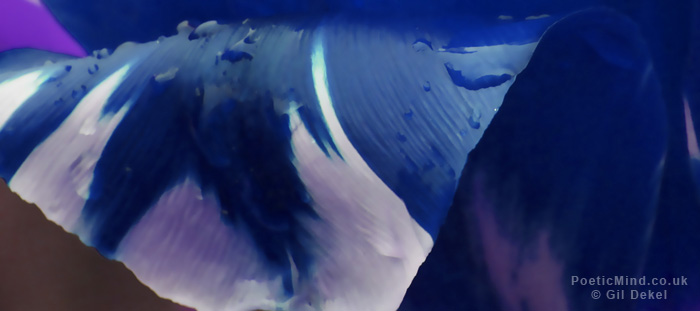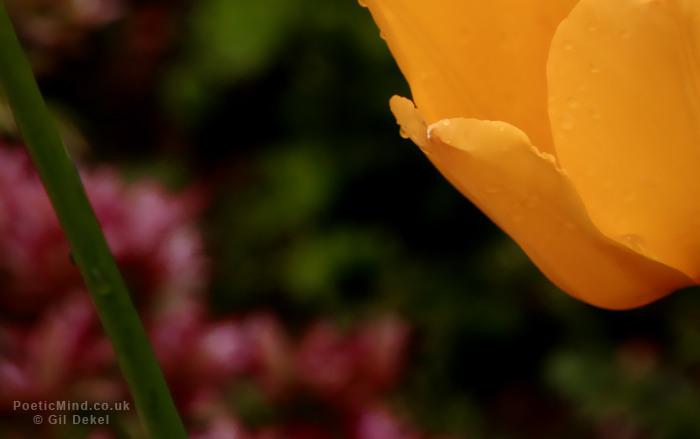by Gil Dekel. Part: 1. 2. 3. 4.
Page 35
Values of right and wrong constantly change. They change in times and in places.
Something that is considered wrong ‘here’, may be ok ‘there’, in another place. So, definitions of right or wrong are not determined by what a person does, but by where a person does it.
39
God gave us free choice. And God will not punish us for choosing.
40
There is no ‘bad’ in God’s realm. All is One.
41
Life is meant to allow you know and recreate Who You Are.
42
There is no hell for bad-people to go to. Bad people make mistakes. Mistakes are not punishable by God. A Master can see God’s perfection in things that people agree on, as well as in those things that people disagree on.
48
We have always ‘been’. We were always ‘were’.
49
God holds everything – the good and the bad events. There is no evil/devil that makes ‘bad’ things – for if there was, that would mean that God would not be everything. And God is everything. Events are opportunities; they are not ‘devil’s work’ nor ‘God’s punishments’.
50
No one crosses our life by chance. We draw people to us. There are no accidents or chances in life. Events and people are drawn to us by us, for a purpose. We live in consciousness groups – groups of people of alike thoughts and purposes. Sometimes we do not agree and need to leave a group, and find our new group or create new one.
51
Our world is a reflection of the total consciousness of everyone living. Our world is as it is, and does not change for the better, because most people are satisfied with it as it is. Most people agree to wars, to winning, to competition. Most people would define something as ‘wrong’ when it is simply ‘different’. Many people will not accept other systems because they differ from existing systems.
52
People think it is natural to kill, and to steal. The inability to experience the suffering of another person as our own, is what allows suffering to continue.
53
The horrors of the Holocaust are not only that the Germans did it – but that the world allowed it to happen.
54
The best way to change others is by your own example. If it is not enough, then be the source of the consciousness group you wish others to experience. They will experience – when you experience. It begins with you. Everything begins with you.
55
When pain is ‘ours’, not just ‘them’, and when joy is ‘ours’, not just ‘mine’ – then we truly are a Whole.
57
Paradise is a state where everything existing in perfection. We make out ‘good’ or ‘bad’ of some things, and we make the ‘good’ be as opposition of the ‘bad’.
58
All things exist simultaneously. There is no time. Things are already here. We merely bring them into form. Thus it is said: “Even before you ask, I will have answered”.
59
We are the ones that are moving. Time is not moving. Time has no movement. There is only one moment.
At significant events in our life we may say that ‘time stood still’. And it does. If we also come to stillness, we may feel one of those life-defining moments.
Science proved that if we fly fast enough, we could swing back toward earth and watch ourselves taking off… Time does not move. We move in it.
60
Time is a tool for counting movements.
62
Time exists only as a construction of our mentality. All that ever happened, and all that will happen – is happening now.
Physical objects are limited by their speed. However, non-physical objects, like thoughts and the soul, can move in high speeds, as indeed happens in dreams or in out-of-body experiences.
63
All things have happened already – so I can choose to see all things, and then pick what’s good for me. When we know this, the knowing makes a thing be experienced in our lives.
64
We exist at all levels simultaneously – our soul always Was, Is and Will Be. We exist more than in one place. Thus, we can know the here-there, and the past-future, because they all are Here and Now…
65
We live many experiences at the same time-point. We experience what we choose to be, yet this does not end us… We think it does, but it does not.
66
We think in that way in order to limit ourselves, and thus to be able to experience life in the limited form we choose to be. We use all our lives, the many lives we are – to decide Who We Are. To create Who We Are.
In truth, we live on many layers. But in our linear-reality we see experiences as having one life in relation to a past-present-future, i.e. on one time. Yet, there is no time, and thus we live all our lives at once. In that way, we may have a ‘strange foreboding’ or feeling about future events. We may have a deja-vu about something in the future. These are awareness to event we have just experienced in our ‘future’. This ‘my-future’ experience is telling us: ‘Hey, this was no-fun. Do not do it again’, or it may tell you that is was good and you could choose again.
67
We also live ‘past lives’ right now, although we experience them as ‘past’. It would be hard to live here, if we were aware of all these lives at once, so we tend to separate all these lives into past, present or future.
Honour this moment of Now. If you learn something from the future or your past, do not ignore it, rather accept it, and see if it has any use for you now.
End of Part 2. Go to Part: 1. 3. 4.
13 August 2014.
© Gil Dekel. Conversations with God, Book 2, by Neale Donald Walsch is published by Hodder & Stoughton, London, UK: 1999. CwG Website.




 - Reading with Natalie, book here...
- Reading with Natalie, book here...